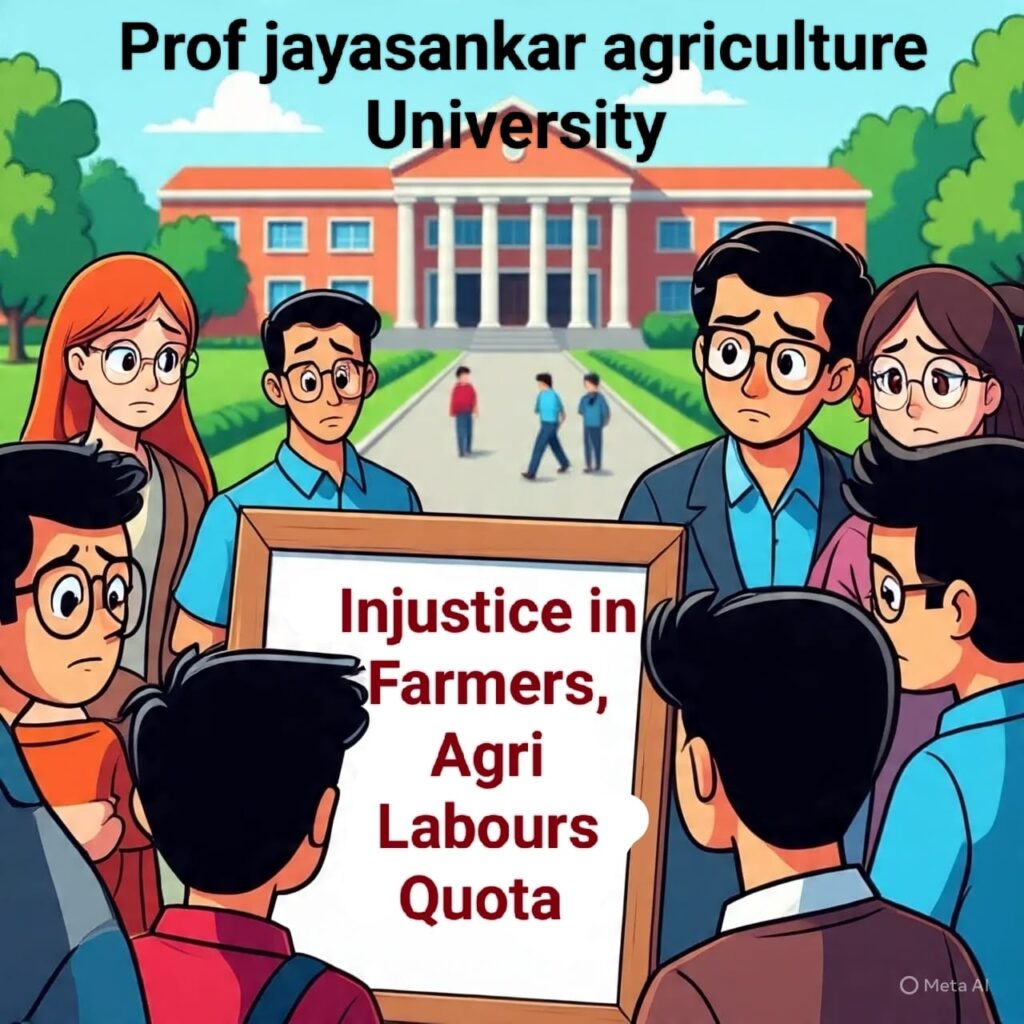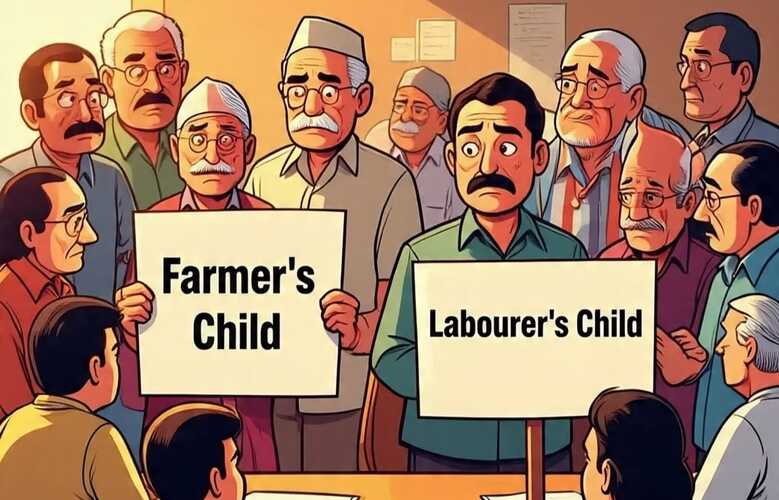- Confusion over farmers’ and labourers’ reservation in Agricultural Universities
Article Today, Hyderabad:
Admissions to agricultural courses in Telangana have triggered sharp criticism over the implementation of quotas for farmers and agricultural labourers. Though seats are being allotted in agricultural, veterinary, and horticultural universities based on EAPCET ranks, doubts are rising over whether the quota rules truly benefit rural families. The aim was to provide opportunities for farmer and labourer households. But procedural flaws appear to dilute that purpose.
Landholding Condition Creates Discontent
In B.Sc. Agriculture, 25 per cent of seats are reserved for farmer quota. Yet, eligibility demands that the family must own and cultivate at least one acre of land. Critics argue this condition is unfair to marginal farmers holding less than an acre. Such families depend entirely on farming but are excluded from the quota. As a result, the benefit often goes to relatively better-off farmer households. Families with less than one acre are pushed into the labourer quota, where opportunities are restricted.

Labour Quota Rules Under Fire
The quota for agricultural labourers is limited to 15 per cent of seats in B.Sc. Agriculture and B.Tech Food Technology. In other courses, no such benefit exists. Moreover, to claim this quota, candidates must have studied for at least four years in government schools or gurukuls between Classes IV and XII. Many labourers send their children to private schools to secure a better future. Hence, the rule excludes genuine labourer families and weakens the spirit of social justice. Students also resent that no reservation is available in horticulture or veterinary courses.
No Link Between Rythu Bharosa and Quota
The State government supports farmers through the Rythu Bharosa scheme, offering direct financial aid. However, there is no alignment between the scheme and education quotas. Tenant farmers and landless labourers receive aid under Rythu Bharosa but remain ineligible for the farmer quota since they do not own land. This mismatch prevents many dependent on agriculture from gaining education opportunities, even while receiving financial support.
Calls for Reform Grow Stronger
Experts suggest that the current quota framework needs urgent reform. They argue that eligibility should not rest on land ownership but on whether a family truly depends on farming or agricultural labour for livelihood. Transparency in counselling and simpler procedures would also help rural students. Critics stress that only with such measures can Telangana ensure genuine social justice in agricultural education. Meanwhile, counselling is underway at the Rajendranagar university auditorium. Many rural candidates, particularly from quota categories, face hurdles due to delayed information and lack of clarity in the process.



